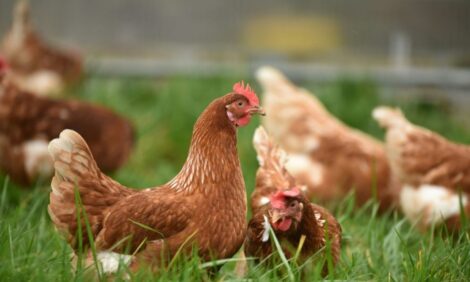



Choline: It's our Nutrient
Choline, a nutrient present in significant amounts in eggs, is vital for human health, according to Dr Donald J. McNamara of Eggs For Health Consulting in New Horizons, the Hy-Line International newsletter.After all the years of cholesterol-phobia, eggs now have the opportunity to promote health benefits which gives the health community a reason to change their long held misconception about the egg. And in the case of choline, we have a nutrient that is really ours. High quality protein, vitamins and minerals, and lutein can be obtained from many foods but only a few provide choline in amounts needed to address the dietary choline inadequacy in the population. In other words, everybody needs eggs. And choline is our unique, necessary nutrient.
* "Choline, a nutrient found in high concentration in the egg, can optimise brain development in the foetus and newborn, lower the risk of neural tube defects, reduce heart disease risk and lower breast cancer risk." |
Choline is a vitamin-like compound with important roles in neurotransmitter synthesis, cell membrane signaling, lipid transport and methyl group metabolism. The dietary essentiality of choline was demonstrated in a study of healthy men with normal folate and vitamin B12 status who developed liver damage with lower plasma choline and phosphatidylcholine concentrations when fed a choline-deficient diet. In 1998, the Institute of Medicine of the National Academy of Science established Adequate Intake values for choline.
Studies have shown that adequate choline intake during pregnancy and lactation optimizes fetal and newborn brain development. In addition, adequate choline intake during pregnancy lowers risk for neural tube defects. Recent studies have shown that adequate choline intake is also associated with lower blood markers for inflammation which have been linked with heart disease risk (ironic that now we know there is at least one component in eggs which helps lower cardiovascular disease risk). Studies have also indicated that higher choline intake helps to lower breast cancer incidence and mortality; one study found that breast cancer risk was lowest in women with the highest egg intakes.
To date, it is clear that choline, a nutrient found in high concentration in the egg, can optimise brain development in the foetus and newborn, lower the risk of neural tube defects, reduce heart disease risk and lower breast cancer risk. Hopefully, the past forty-plus years of cholesterol-phobia and egg restrictions have not negatively impacted on choline intake in the population.
Unfortunately, it has been shown that the majority of the population does not achieve the recommended dietary intake of choline. In fact, less than one in ten Americans, including one in ten pregnant females, have an adequate choline intake. For the population, addition of one egg per day to the diet would result in 50 per cent attaining an adequate choline intake. This is also true for pregnant and lactating women. Clearly the recommendations from various countries to include an egg a day in the diet are the right choice to address this serious nutrient inadequacy. (Of course people could also use the other excellent sources of choline in the diet which are beef and chicken livers.) An egg a day really is okay because eggs are the solution, not the problem, to our nutritional needs.
September 2010








